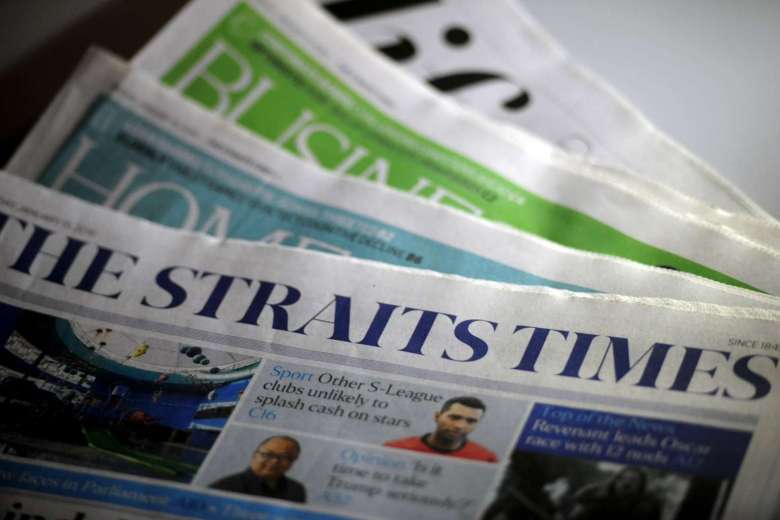Indonesia police break up radical Islamic cyber network provoking extremism
Sign up now: Get insights on Asia's fast-moving developments

Follow topic:
JAKARTA (WASHINGTON POST) - Indonesian police announced on Thursday (March 1) the arrest of 14 members of a network called the "Muslim Cyber Army," which they say has been using hacking, online misinformation campaigns, and hate speech to push the world's fourth most populous country in a more conservative direction.
Mohammad Fadil Imran, director of the Indonesian national police cyber crimes unit, said that the suspects are accused of defamation, spreading false reports, racial and religious discrimination, among other crimes.
They were picked up all around Indonesia, he said, and more may be still be detained.
"The operation is ongoing, and new developments may emerge soon," Imran said on Thursday. "We were able to use common, basic technology to track them down."
Analysts believe that social network campaigns, including fake news, or "hoax" news as it is called here, have been instrumental in a slow lurch to the right in the world's largest Muslim-majority country.
According to police and expert accounts, Muslim Cyber Army is a name used by a loosely connected network of groups that mostly produce online content for open distribution on platforms like Facebook and the WhatsApp direct messaging service.
They're also accused of infiltrating other users' accounts, and publishing private information and locations of their enemies - a process known as "doxing".
Most famously, the network allegedly spread rumors that the country's Islamic clerics were under attack, or that the Indonesian Communist Party - banned since 1966, after it was decimated by the military - is being resurrected. Both claims provoked a violent response from Indonesian conservatives here.
Imran said he could not confirm earlier reports in the Indonesian media that a wanted member of the group is at large in South Korea or elsewhere around the world.
A number of groups reportedly operate in the network using different Muslim Cyber Army (MCA) names, such as The Family MCA, The United MCA, The Legend MCA, Special Force MCA, Muslim Sniper, and MCA News Legend.
Despite their provocative names - given to themselves, mostly in English - the groups began with legal, nonviolent political aims, only later expanding to illicit activities with serious consequences, according to Damar Juniarto, founder of digital rights group South-east Asia Freedom of Expression Network, who has been tracking MCA since last year.
"Their activities have led to people losing their jobs, being kidnapped or even tortured," said Juniarto. "Indonesian society was already divided, but they have provided fuel for hatred and had a significant impact on politics here."
Some of the MCA groups simply want Indonesia's traditional military elite reelected, according to Juniarto's research, while other more radical groups want a caliphate or sympathise with global Islamist groups that advocate violent jihad. But they're all united against what they perceive as excessively liberal or secular politics.
Indonesia is a democracy led by moderate President Joko "Jokowi" Widodo. But over the last year, his government has been under attacks from an insurgent religious right. Last year, former Jakarta Governor Basuki Tjahaja Purnama, a Christian of Chinese descent and Jokowi ally known as Ahok, was jailed after being accused of blaspheming Islam.
The ultimately successful movement to jail Ahok was propelled by mass protests coordinated on social media, as well as selectively edited footage of comments he made about the Koran.
Conservatives have also succeeded in inserting legislation banning gay sex and sex outside marriage into a planned revision to the criminal code, and many hard-liners hope to unseat Widodo in elections next year.
Last September, a group of self-styled anti-communists attacked a conference to discuss the 1965 massacre of 500,000 to one million suspected leftists, after false reports spread on social media that the researchers and human rights activists were actually there to bring back the Indonesian Communist Party (PKI). They surrounded the building shouting "Allahu akbar" and "Kill PKI," according to those trapped inside all night. Police are now trying to sort out which groups have spread which rumours, and who committed crimes.
Indonesia, a country of more than 260 million, is also home to millions of Christians, Buddhists, Hindus and followers of Confucianism. They are protected from blasphemy and discrimination by current Indonesian law.
Cania Irlanie, a political science student who appeared on television last year in a debate show and publicly opposed laws infringing on LGBT and individual sexual rights, says she was specifically targeted by MCA groups. They circulated images of her, accusing her of blasphemy, until she was receiving constant death threats.
"I'm not sure if they broke the law when they targeted me specifically, but they have definitely affected my life, and I worry about my future," she said.
"Soon even my university teachers were attacking me. I knew how bad this had become when I went to the mall, and a group of old women recognised me, and began pointing at me like I was the daughter of Satan."

